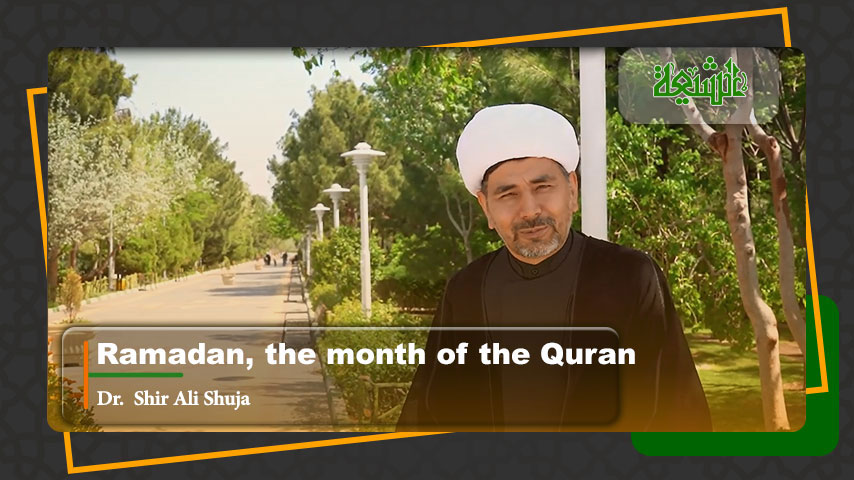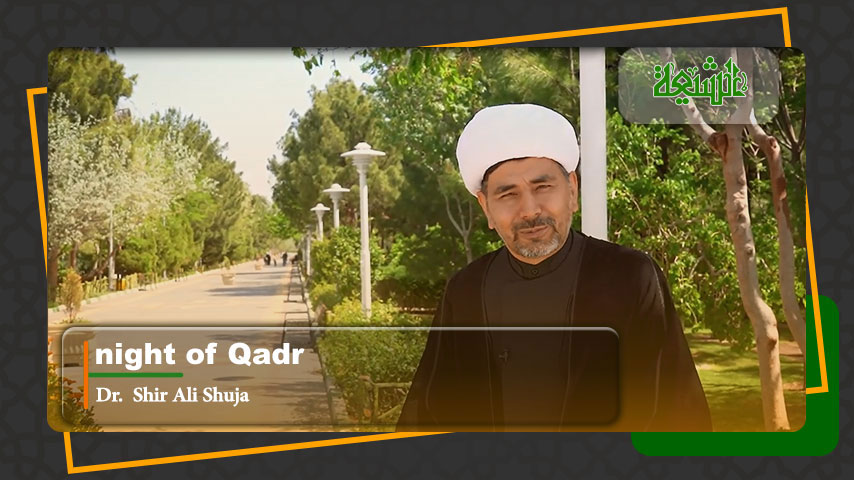According to an explicit declaration of the Qur’an itself, its verses -based on the clarity of its meaning or otherwise- could be broadly categorized into two: Muhkam, that is the ‘Clear’ and the Mutashabih, that is, the ‘Ambiguous’ verses. In verse 7 of the chapter Ale ‘Imran we read:
هُوَ الَّذِي أَنْزَلَ عَلَيْكَ الْكِتَابَ مِنْهُ آياتٌ مُحْكَمَاتٌ هُنَّ أُمُّ الْكِتابِ وَ أُخَرُ مُتَشَابِهاتٌ
“It is He Who has sent down to you (O’ Muhammad!) the Book, of it there are some clear Verses, these are the basis of the Book and others are ambiguous.” (1)
The question, which arises here, is: What is meant by the ‘Clear’ and ‘Ambiguous’ verses?
The word مُحكَم has been derived from احكام which means ‘to prohibit’ and it is for this reason that fundamental and firm issues are called محكم, for they prohibit and repel away destructive factors from themselves. In addition, firm and conclusive talks and ideas, which keep away every possibility of contradiction from themselves, are referred to as محكم.
Thus, the Clear verses are those verses, whose meanings are so clear and manifest that there exists no need for any sort of discussion with respect to their meanings – such as the following verses…
قُلْ هُوَ اللٌّهُ أَحَدٌ
“Say: He Allah is One (alone).” (2)
لَيْسَ كَمِثْلِهِ شَيْءٌ
“Nothing whatsoever (is there) resembling the like of Him.” (3)
اللٌّهُ خالِقُ كُلِّ شَيْءٍ
“Allah (alone) is the Creator of all things.” (4)
لِلذَّكَرِ مِثْلُ حَظِّ الْأُنْثَيَيْنِ
“The male shall have the equal of the shares of two females.” (5)
And thousands of other similar verses – dealing with issues relating to ‘Aqaid (beliefs), laws and rulings, preaching, history – are all Clear verses. These Clear verses have been named as Ummul Kitab (Basis of the Book) i.e. they are the basis for the interpretation and explanation of the other verses.
On the other hand, the word مُتَشاَبِه (which appears in verse under consideration) basically means ‘a thing, whose various parts are similar to one another’. For this reason, the sentences or words, whose meanings are ambiguous and at times appear to possess several meanings and possibilities, are called مُتَشاَبِه. This is exactly what is meant by the Ambiguous verses of the Quran – for these are the verses of the Quran, which initially and at first sight appear to be ambiguous and possess several meanings (although, after taking into consideration the Clear verses, their meanings become evident and manifest.)
Although commentators have presented numerous possibilities in connection with the meaning of ‘Clear’ and ‘Ambiguous’ verses, what we have stated above is not only in total concordance with the original meaning of these two words but also with the occasion of revelation of this verse, the various traditions which explain the verse and with the verse itself.
This is because, in the later portion of the abovementioned verse, we read that certain individuals always utilize the Ambiguous verses as their pretext (to promote their personal motives). It is evident that they misuse those verses, which at first sight appear to possess several meanings and interpretations, and this very fact conveys that متشابه (Ambiguous) is in the meaning stated above.
The verses that speak of the Attributes of Allah and the details of the Day of Judgment can be presented as examples of Ambiguous Verses. Some of these verses are as follows:
يَدُ اللٌّهِ فَوْقَ أَيْدِيهِمْ
“The hand of Allah is above their hands” (6)
which is regarding the Power of Allah;
وَ اللٌّهُ سَمِيعٌ عَلِيمٌ
“And surely, Allah is All-Hearing, All-Knowing” (7)
which refers to the Knowledge of Allah;
وَ نَضَعُ الْمَوَازِينَ الْقِسْطَ لِيَوْمِ الْقِيامَةِ
“And We shall set up the balances of justice on the Day of Judgment” (8)
which speaks of the means of measuring the Deeds.
It is evident that neither does Allah possess hands and ears (meaning a special limb or organ) nor are the Scales for measuring the Deeds similar to what we are accustomed to; rather these are expressions which refer to a universal concept and meaning for Power, Knowledge and Measurement.
It is necessary to mention that محكم and متشابه have also been used differently in the Noble Quran. In the Quran, we read:
كِتابٌ أُحْكِمَتْ آياتُهُ
“A book whose verses are firmly arranged (together).” (9)
In this verse, all the verses of the Quran have been characterized as محكم, denoting that all the verses of the Quran are interrelated and in complete harmony with one another.
In the Quran we read:
كِتاِباً مُتَشاَبِهاً
“A Book consistent (in its parts)”, which means ‘a book, all the verses of which are consistent and similar to one another with respect to correctness, veracity and authenticity’. (10)
From what we have stated with respect to the Clear and Ambiguous verses it is clear that a truth-seeking person, in order to comprehend the Speech of Allah, has no option other than to place all the verses alongside each other and derive the truth and reality from them.
Suppose, at first sight, he faces intricacy and ambiguity in the apparent meanings of some of these verses. In that case, he should clear the vagueness by considering the other verses of the Quran thereby reaching the essence of the verses.
In reality, the Clear Verses, from one perspective, are like highways while the Ambiguous Verses are like byways. It is apparent that if a person happens to lose his way in the byways, he endeavours to reach the nearest highway and find his way from there.
Reference to the Clear Verses as Ummul Kitab (Basis of the Book) is yet another point which serves to corroborate this reality. The word Umm means ‘basis’ and ‘origin’ of a thing and this is why a mother is referred to as Umm, for she is the basis of a family and a shelter for the children in times of trouble and distress. Similarly, the Clear Verses are regarded as the basis, foundation and the mother of the other verses. (11)
NOTES:
______________________________
1. The Quran 3:07
2. The Quran 112:1
3. The Quran 42:11
4. The Quran 13:16
5. The Quran 4:11
6. The Quran 48:10
7. The Quran 2:224
8. The Quran 21: 47
9. The Quran 11:1
10. The Quran 39:23
11. Tafsir-e-Nemuneh, vol. 2, pg. 320
















